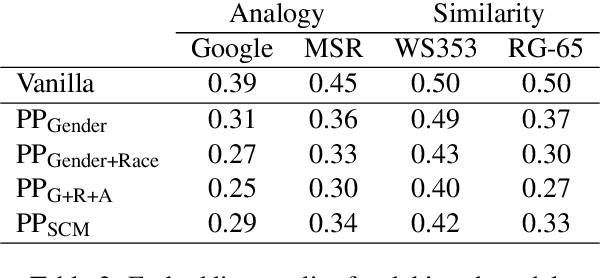Social-Group-Agnostic Word Embedding Debiasing via the Stereotype Content Model
Paper and Code
Oct 11, 2022

Existing word embedding debiasing methods require social-group-specific word pairs (e.g., "man"-"woman") for each social attribute (e.g., gender), which cannot be used to mitigate bias for other social groups, making these methods impractical or costly to incorporate understudied social groups in debiasing. We propose that the Stereotype Content Model (SCM), a theoretical framework developed in social psychology for understanding the content of stereotypes, which structures stereotype content along two psychological dimensions - "warmth" and "competence" - can help debiasing efforts to become social-group-agnostic by capturing the underlying connection between bias and stereotypes. Using only pairs of terms for warmth (e.g., "genuine"-"fake") and competence (e.g.,"smart"-"stupid"), we perform debiasing with established methods and find that, across gender, race, and age, SCM-based debiasing performs comparably to group-specific debiasing
 Add to Chrome
Add to Chrome Add to Firefox
Add to Firefox Add to Edge
Add to Edge